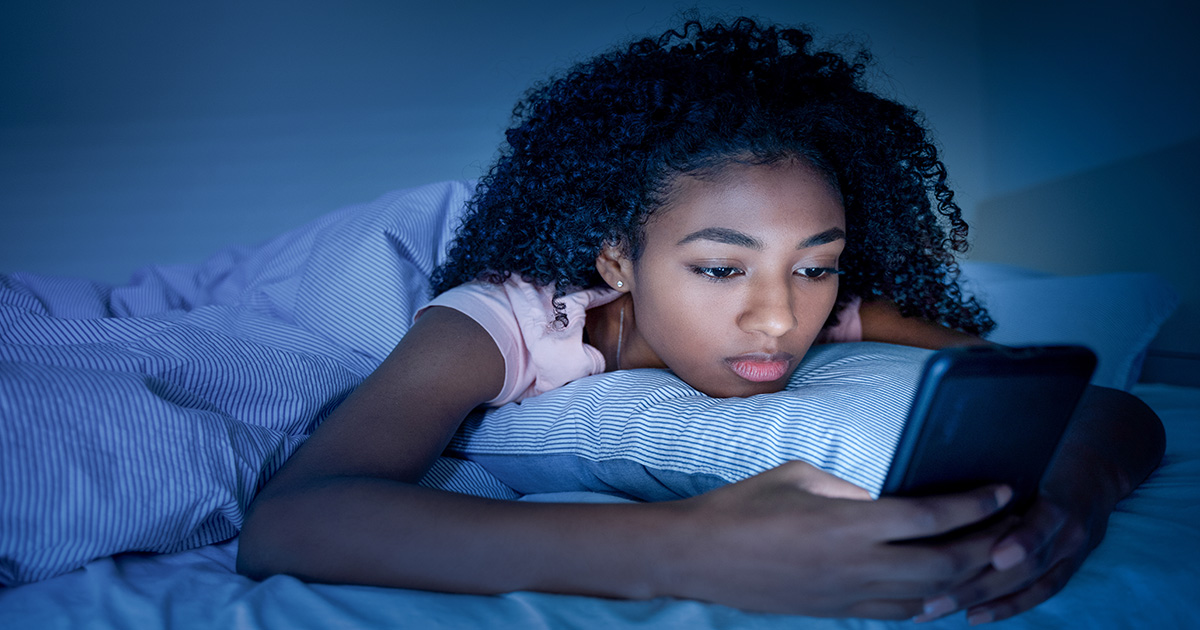The Woolcock Institute of Medical Research

The teen sleep conundrum: Examining the impact of late body clocks and sleep deprivation
We delve into the complex world of teenage sleep patterns, discussing how the adjustment to daylight-saving time and late body clocks affect young individuals. We had the privilege of speaking with Dr Chris Seton, a prominent paediatric and adolescent sleep specialist at the Woolcock, on the significance of sleep patterns and daylight-saving, especially concerning teenagers.
NAVIGATING THE SLEEP EVOLUTION
From the early days of infancy to the adult years, our sleep patterns undergo a variety of changes. Babies sleep on-demand, have naps when needed, eventually transitioning into a more predictable day-night rhythm. Toddlers continue to nap, but once they start school, daytime naps typically fade away. The early school years see kids going to bed early and rising early, a routine that sometimes vexes their sleep-deprived parents, who crave to sleep-in.
TEENAGE TRANSFORMATIONS
Then they hit their teens and a shift in their body clocks becomes evident. They tend to stay up late and struggle to wake up early, a challenge that often clashes with societal norms, especially school schedules. Dr Seton argues that schools should adapt to teenagers' evolving body rhythms to optimise their academic performance.
Want to stay up to date with our research on sleep and respiratory conditions?
Sign up to our monthly newsletter
UNDERSTANDING THE LATE BODY CLOCK
For teenagers with a late body clock, symptoms often include lethargy, grogginess, and difficulty retaining information in the morning—like experiencing perpetual jetlag, and so sometimes termed ‘social jetlag’. This misalignment between their natural sleep patterns and societal expectations can lead to chronic sleep deprivation, which may fuel anxiety, and depressed moods.
NORMAL VS LATE BODY CLOCK
A normal body clock typically involves a reasonable bedtime, around eight and a half hours of sleep, and a 9-5 daytime work or school schedule. Such a person feels tired at bedtime, gets to sleep quickly, and wakes up feeling refreshed. Teenagers, ideally, should aim for approximately nine hours of sleep per night.
A late body clock on the other hand is described as feeling wide awake at night, full of energy and fizz, and unable to get to sleep. We call this feeling ‘tired but wired’. Then, waking, and getting up and moving each school day morning is very difficult.
THE RISE OF SLEEP DEPRIVATION
Chronic sleep deprivation among Australian teenagers has surged to approximately 70%, a significant increase from just 30% - 15 years ago. Contributing factors include the ubiquitous presence of mobile devices, which blur the line between sleep and stimulating activities, leading to what's known as 'conditioned arousal.' Late body clocks and overscheduling (teens who are so busy they have little time left for sleep) are also key contributors to this tsunami of tired teens.
FINDING SOLUTIONS
Addressing this issue theoretically seems straightforward—encourage teens to limit screen time in their bedrooms or power down devices at night. However, this often involves an opportunity cost—more screen time at night translates to less sleep. The shrinking window for sleep gets filled with other activities, and teenagers are particularly sensitive to this effect compared to young adults.
IMPACT ON HEALTH AND DIET
Sleep deprivation often affects food choices, with tired teens more inclined to opt for unhealthy, fatty, high-carb foods. This can have serious health consequences, potentially leading to conditions like diabetes, obesity, or high blood pressure.
MENTAL HEALTH IMPLICATIONS
Mental health problems are highest in adolescents and GPs can help by referring them to sleep clinics such as the Woolcock’s Sleep Clinic. Data shows that regulating sleep has better outcomes than mood altering medication.
THE ROLE OF PARENTS, TEACHERS, AND GPS
Recognising a gap in adolescent sleep health, Dr Seton underscores the need for parents to prioritise their teenagers' sleep health. Teenagers often have trouble managing their sleep independently.
Ensuring teenagers grasp the importance of healthy sleep habits involves a collective effort from parents, teachers, and healthcare providers. Teachers can identify sleep-deprived students, initiate conversations with them, and involve parents, who may be unaware of their child's sleep issues.
Some simple tips to help your teens sleep include:
- In the week(s) leading to daylight saving try and go to bed a little earlier
- Only use the bed for sleep
- Try to go to bed and get up at the same time each day
- Turn computers, phones, and other devices off at bedtime and ideally charge them away from the bedroom.
ACCESS TO SLEEP TIPS
Listen to ABC's Parental as Anything podcast - Why your teen simply must sleep
Listen to SBS News in Depth podcast - Study stress concerns as final year 12 exams approach
For valuable sleep tips tailored to teenagers, you can download our 10 Sleep Tips for teens poster
FIND OUT MORE
- Read about our Insomnia Clinic
- To find out about our services, go to www.woolcock.org.au/clinic










